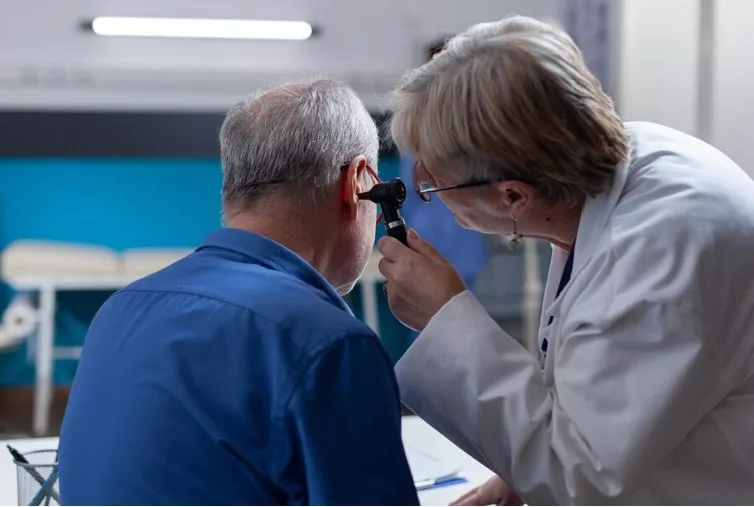Why does your skin lose its bounce, and how can collagen and skin elasticity help you maintain youthful skin?
As the years pass, many wonder why their skin begins to sag or feel less supple. The answer lies in collagen and skin elasticity—two key players in maintaining the skin’s firmness and structure.
But what exactly are they, and how do they work together?
Read about the science of collagen and skin elasticity, explore their roles in skin health, and explain how they can keep your skin looking and feeling its best.
What Is Collagen and Why Is It Important?
Collagen is the most abundant protein in the human body. It acts like a scaffold, providing structure and support to the skin, muscles, bones, and connective tissues. Think of it as the glue that holds everything together. Your skin’s collagen keeps it firm, smooth, and hydrated.
As you age, collagen production naturally decreases. This decline begins in your late 20s and accelerates in your 30s and beyond. Without adequate collagen, your skin may show signs of aging, such as wrinkles, fine lines, and sagging.
What Is Skin Elasticity?
Skin elasticity refers to the skin’s ability to stretch and snap back to its original shape. It keeps the skin looking youthful and resilient. Elastin, a protein that works alongside collagen, determines the skin’s elasticity.
When collagen and skin elasticity are compromised, your skin may become loose, thin, or less able to bounce back after being stretched. This can lead to visible signs of aging, including sagging cheeks and a lack of definition around the jawline.
The Benefits of Collagen for Skin
Collagen is essential for maintaining healthy, youthful skin. Here are the top benefits it provides:
1. Improved Firmness and Smoothness
One of the most noticeable benefits of collagen for skin is its ability to improve firmness. By supporting the skin’s structure, collagen helps reduce the appearance of fine lines and wrinkles, leaving your skin smoother and plumper.
2. Enhanced Hydration
Collagen plays a vital role in skin hydration. It supports the skin barrier, which retains moisture and prevents dryness. This is especially crucial, as dehydrated skin can make wrinkles appear more pronounced.
3. Faster Wound Healing
Collagen is a key component in tissue repair. Whether you have a minor cut or a surgical scar, collagen helps your skin heal faster by stimulating new tissue growth.
4. Boosted Skin Elasticity
By replenishing collagen levels, you can enhance your skin’s ability to stretch and bounce back, combating the natural loss of elasticity that comes with age.
Factors Affecting Skin Elasticity
Several factors can impact your skin’s elasticity, some of which you can control and others you cannot.
Let’s take a closer look:
1. Age
Age is the primary factor affecting collagen and skin elasticity. As you age, collagen and elastin fibers naturally break down, leading to a loss of skin firmness.
2. UV Exposure
Excessive sun exposure can degrade collagen and elastin in the skin, accelerating aging. Protecting your skin from UV rays is essential for preserving elasticity.
3. Lifestyle Choices
Smoking, poor diet, and lack of sleep can all contribute to the breakdown of collagen and elastin. Antioxidant-rich foods and a healthy lifestyle can help counteract these effects.
4. Genetics
Your genetic makeup plays a significant role in determining how quickly you lose collagen and skin elasticity. If your parents showed early signs of aging, you might be predisposed to the same.
5. Environmental Pollutants
Pollutants can generate free radicals that damage skin cells, reducing collagen production and elasticity.
How to Boost Collagen and Improve Skin Elasticity
1. Incorporate Collagen Supplements
Collagen supplements, such as those offered by Vitauthority, provide your body with the building blocks it needs to maintain healthy collagen levels. These supplements are often hydrolyzed for better absorption.
2. Eat Collagen-Boosting Foods
Foods rich in vitamin C, zinc, and amino acids can promote collagen production. Citrus fruits, bone broth, and leafy greens are excellent additions to your diet.
3. Stay Hydrated
Hydrated skin is more resilient and less prone to damage. Drinking plenty of water helps support collagen and elastin production.
4. Protect Against UV Damage
Sunscreen is a must for maintaining collagen and skin elasticity. Apply SPF daily to shield your skin from harmful UV rays that break down collagen fibers.
5. Use Retinoids and Peptides
Topical treatments like retinoids and peptides can stimulate collagen production and improve skin texture.
Why Choose Vitauthority for Your Collagen Needs?
Supporting collagen and skin elasticity, Vitauthority offers premium supplements that are easy to incorporate into your daily routine. Designed to promote overall skin health, these supplements help you look and feel your best, regardless of age.
Conclusion
Skin aging is inevitable, but understanding the science behind collagen and skin elasticity can help you take better care of your skin. From staying hydrated to incorporating collagen into your routine, there are effective ways to keep your skin looking firm, smooth, and youthful. While aging can’t be stopped, these proactive measures can help you maintain a radiant complexion.
Take control of your skin’s health with Vitauthority’s best women’s supplement for skin. Support natural beauty by choosing products that promote collagen production and elasticity. Start your journey to healthier, more youthful skin today!
Also Read: How to Become an Ear Wax Removal Specialist in the UK


